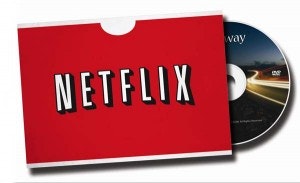
Earlier this week, Tilson presented a few of his bullish investment ideas at another Value Investing Congress. Tilson still likes Netflix, Inc. (NASDAQ:NFLX), and also loves Spark Networks Inc (NYSEMKT:LOV).
What are investors to make of Tilson’s arguments, and should they consider following him into these stocks?
Tilson’s Spark Networks’ argument has a glaring flaw
Spark Networks Inc (NYSEMKT:LOV) is probably the more intriguing pick. It’s a small company (sub $200 million market cap) and it doesn’t get much coverage in the financial media.
As society becomes increasingly digital, online dating will likely continue to gain in popularity. Recent hit mobile apps (like the aptly titled “Bang with Friends”) are clear-cut evidence for that. Also, as the millennial generation ages, more of them will likely turn to online dating websites to find suitable long-term matches in place of the classic alternatives (namely, going to a bar).
So, I believe there are obvious secular tailwinds benefiting online dating companies. Yet, Tilson’s argument for Spark Networks falls flat based on one of his basic premises.
Spark Networks Inc (NYSEMKT:LOV) is unique among dating website companies — it’s primarily concerned with pairing people based on their religious beliefs. JDate and Christian Mingle combine for nearly all of the company’s revenue.
Tilson argues that JDate is an established business that offers consistent cash flow; meanwhile, Christian Mingle offers great growth. Yet Tilson vastly exaggerates Christian Mingle’s potential.
Specifically, he states that Christian Mingle is aimed at a community over 30 times greater than JDate’s. Based on this calculation, Tilson appears to be using US census data for the number of Jews and Christians living in the United States.
It is absurd to believe that Christian Mingle could capture the Christian dating community the way JDate has captured the Jewish one.
The Jewish community is a minority in the US, while Christians are the overwhelming majority (about 2% compared to 76%). An American, then, going on any given dating website (Match, Chemistry, etc.) is likely to find a large number of possible Christian matches. Thus, there is no real incentive for a Christian to opt for Christian Mingle over any other dating website.
Instead, Christian Mingle is likely to attract those Christians who are deeply religious — those who would see Christian beliefs as the most desirable trait in a potential mate. It’s hard to gauge how many Americans fit this description, but if one uses the number of Evangelical Christians, it’s a much smaller figure than the one Tilson’s banking on (about 20% of Americans are affiliated with Evangelical churches).
By Tilson’s own admission, Spark Networks doesn’t look like a cheap stock — it’s losing money and trades at 2.2 times revenue. It will need to grow, and perhaps it will. But his case for Christian Mingle is wildly optimistic.
Netflix as a value play?!
It’s kind of shocking to see Netflix, Inc. (NASDAQ:NFLX) presented at a Value Investing Congress. Shares of the video streaming giant are currently trading with a price-to-earnings ratio above 500 (compared to a market multiple near 18).
But Tilson has had an interesting relationship with Netflix, Inc. (NASDAQ:NFLX). He was one of the most vocal Netflix bears in 2010, and shorted the stock as it was running up to its all-time higher near $300. Unfortunately, he covered before shares collapsed in the second half of 2011.
Later, he reversed course and turned bullish on the stock. That’s worked out well, as shares have more than quadrupled since he last argued the case for Netflix, Inc. (NASDAQ:NFLX).
But even above $200 per share, Tilson still likes Netflix. He makes a number of logical arguments: based on Hulu’s valuation and the possibility of it being acquired, shares could have further upside.
But, he steps into the realm of the absurd when he compares the company to Amazon.com, Inc. (NASDAQ:AMZN). Tilson argues that Netflix looks like Amazon looked in 2001 based on a number of financial metrics: number of customers, growth, market cap, etc.
He also points out that both companies have been hated and heavily shorted despite tremendous run ups.
To be fair, it may be an objective fact that Netflix, Inc. (NASDAQ:NFLX) has the same market cap now that Amazon.com, Inc. (NASDAQ:AMZN) had over a decade ago; and it may be that both companies are Internet-based and have visionary CEOs. But these facts are completely irrelevant.
Netflix and Amazon do not have anywhere near the same business model. Amazon.com, Inc. (NASDAQ:AMZN) is a seller of physical and digital goods online. It’s fundamentally a retailer. In contrast, Netflix is a content medium. At best, it’s an alternative to cable; and if the company can execute on its vision, it will become a more popular, Internet-only version of HBO.
By expanding into hardware with its Kindle lineup (and soon phones and set-top boxes) Jeff Bezos wants to make Amazon the Wal-Mart Stores, Inc. (NYSE:WMT) of the digital age. By contrast, Hastings would prefer Netflix became the dominant content provider in a world without traditional cable and broadcast channels.
Tilson’s picks
Tilson has obviously had some success with his picks in the past. A trader who had taken his Netflix, Inc. (NASDAQ:NFLX) advice last year would’ve done quite well.
Buying Spark Networks and staying with Netflix might prove to be equally as rewarding. But based on Tilson’s reasoning, I can’t get behind the trades. Christian Mingle’s potential marketplace is much smaller than Tilson assumes, while comparing Netflix to Amazon is just downright absurd.
The article Fund Manager Who Called for Netflix’s 300% Rally Likes These Stocks originally appeared on Fool.com and is written by Salvatore “Sam” Mattera.
Copyright © 1995 – 2013 The Motley Fool, LLC. All rights reserved. The Motley Fool has a disclosure policy.


